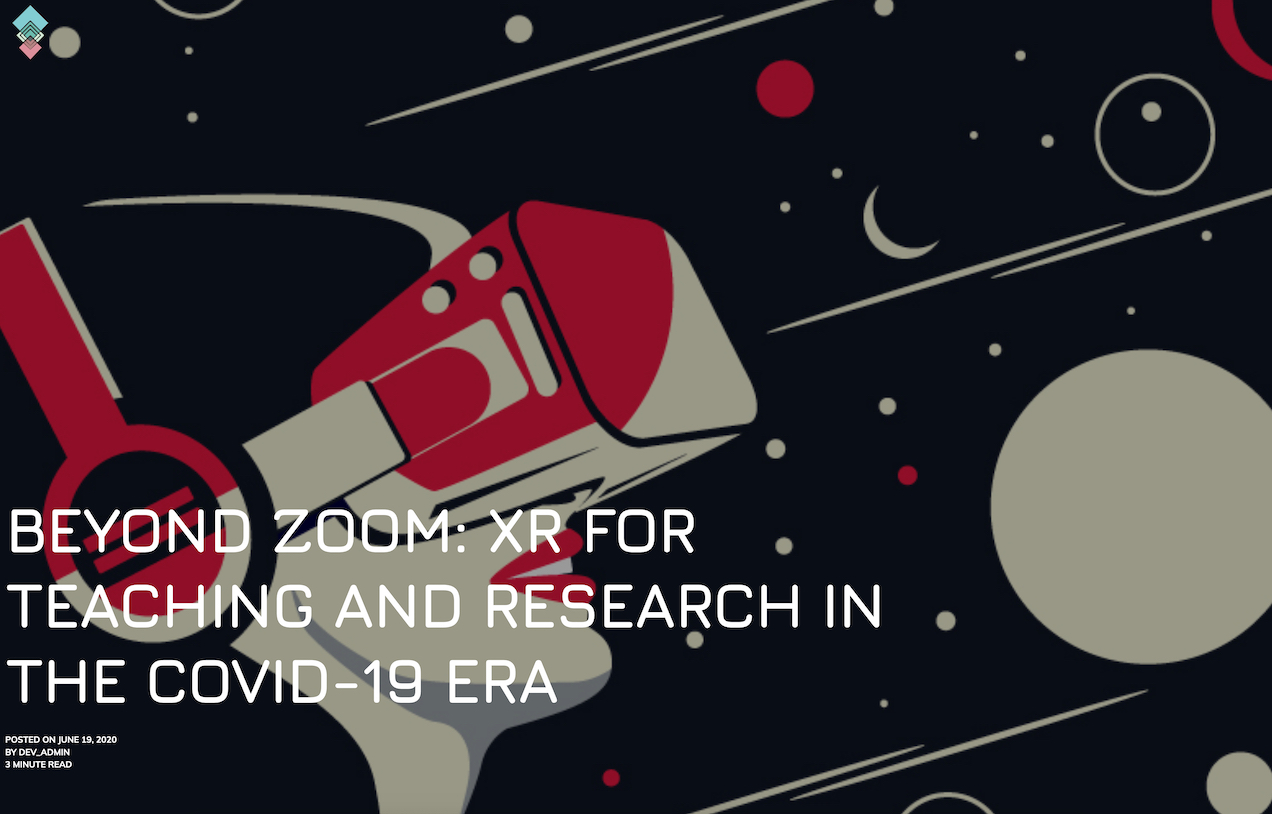Event
Beyond Zoom: XR For Teaching and Research in the COVID-19 Era
Submission Deadline: July 10, 2020
Conference Date: August 7, 2020
Submit Proposals at: https://forms.gle/yzHWHgNjPSgVLb5X8
Register to Attend at: http://dartgo.org/covid-xr-conf-reg
Send Questions to: covid.xr.conf@gmail.com
_______________________________________________
Recent large scale engagement with remote learning has brought to the fore the challenges of teaching and learning in an online environment. While technologies like videoconferencing and learning management systems have drawn a great deal of critical review and pedagogical development, we can also apply the lessons of higher education’s sudden foray into mass remote teaching to other types of tools. In particular, XR–a catch-all term including augmented and virtual reality, as well as related technologies for spatial and pervasive computing–holds both great potential and challenges for educational use under pandemic conditions.
This virtual conference will explore areas where XR can mitigate the challenges of engaging with students remotely as well as investigate new opportunities to apply XR technologies across remote, face-to-face, or hybrid environments. In particular, are there opportunities to use XR to help teach within or across disciplines such as laboratory science, clinical education, studio art, fieldwork, or other object- and place-based teaching. We welcome proposals for brief (5-minute) lightning talks showing off existing XR projects, discussing student and faculty feedback from remote classes that can help shape future XR projects, and ideas for safely dealing with the logistics of technology that is literally in your face while trying to maintain social distancing standards. These brief presentations will be organized into sessions that seed generative discussions as part of a day-long event.
Examples of relevant presentations
include:
- Discussions of existing XR software that has been deployed for classroom use (live in-headset demonstrations will not be supported, though screenshots and videos are welcome)
- Results of faculty or student surveys highlighting where XR could fill gaps in remote learning built around videoconferencing
- Experiments in or ideas for using XR to support remote community building
- How plans for exploring or deploying XR in the classroom have changed since the beginning of the pandemic
- Examples of development patterns or technologies to quickly build lessons for XR
- Rigorous testing methodologies that demonstrate when XR is-and isn’t-effective as a classroom tool that increases student engagement or improves learning outcomes
- Best practices for safely sharing XR resources like VR headsets while trying to contain viral spread
- Ideas for designing pedagogy meant for headsets rather than screens
- Sources for primary materials that have particular impact when experienced with XR (e.g. 360 videos)
- Methods for hybridizing experiences that are partially virtual and partially physical
- Research on the environments in which students and faculty have been accessing remote classes, including how spaces are shared at home, network connection quality, and other factors that could influence XR adoption
- Novel technologies and applications that expand the classroom by mixing the virtual and the physical
HOSTS
Information, Technology, and Consulting; The Neukom Institute; Film and Media Studies @ Dartmouth College
Online Learning Initiative and Cinema & Media Studies @ University of Pennsylvania

